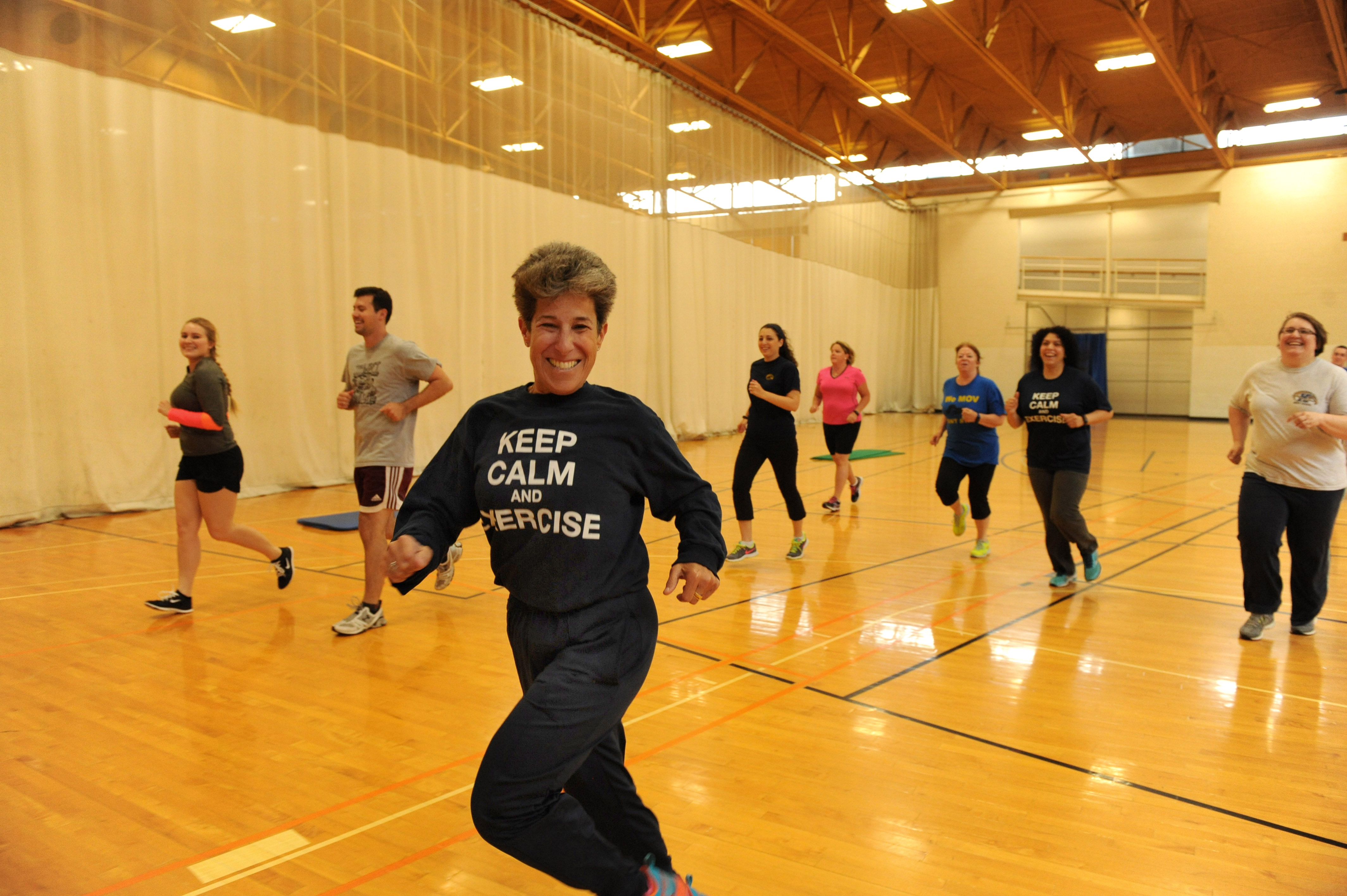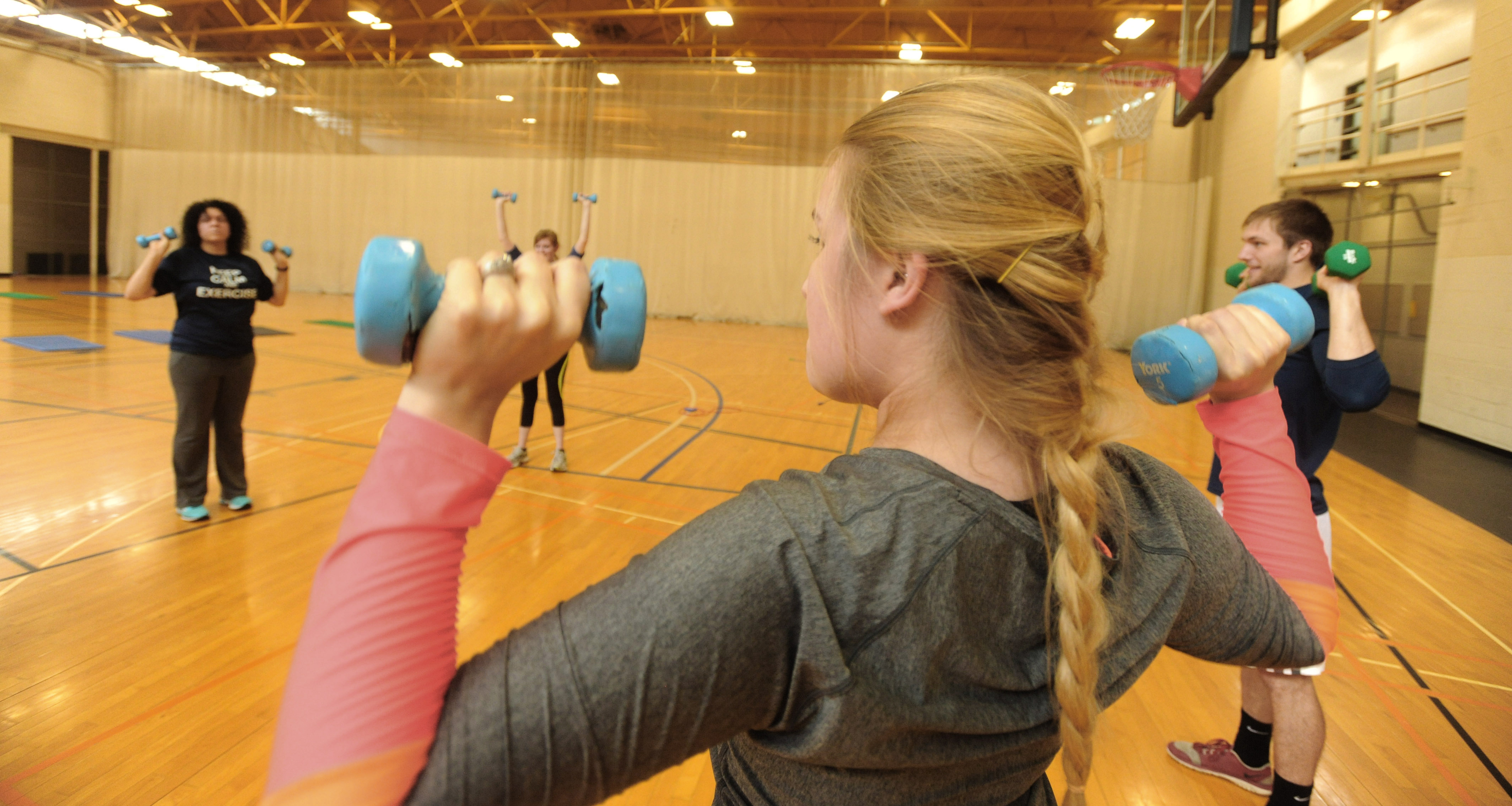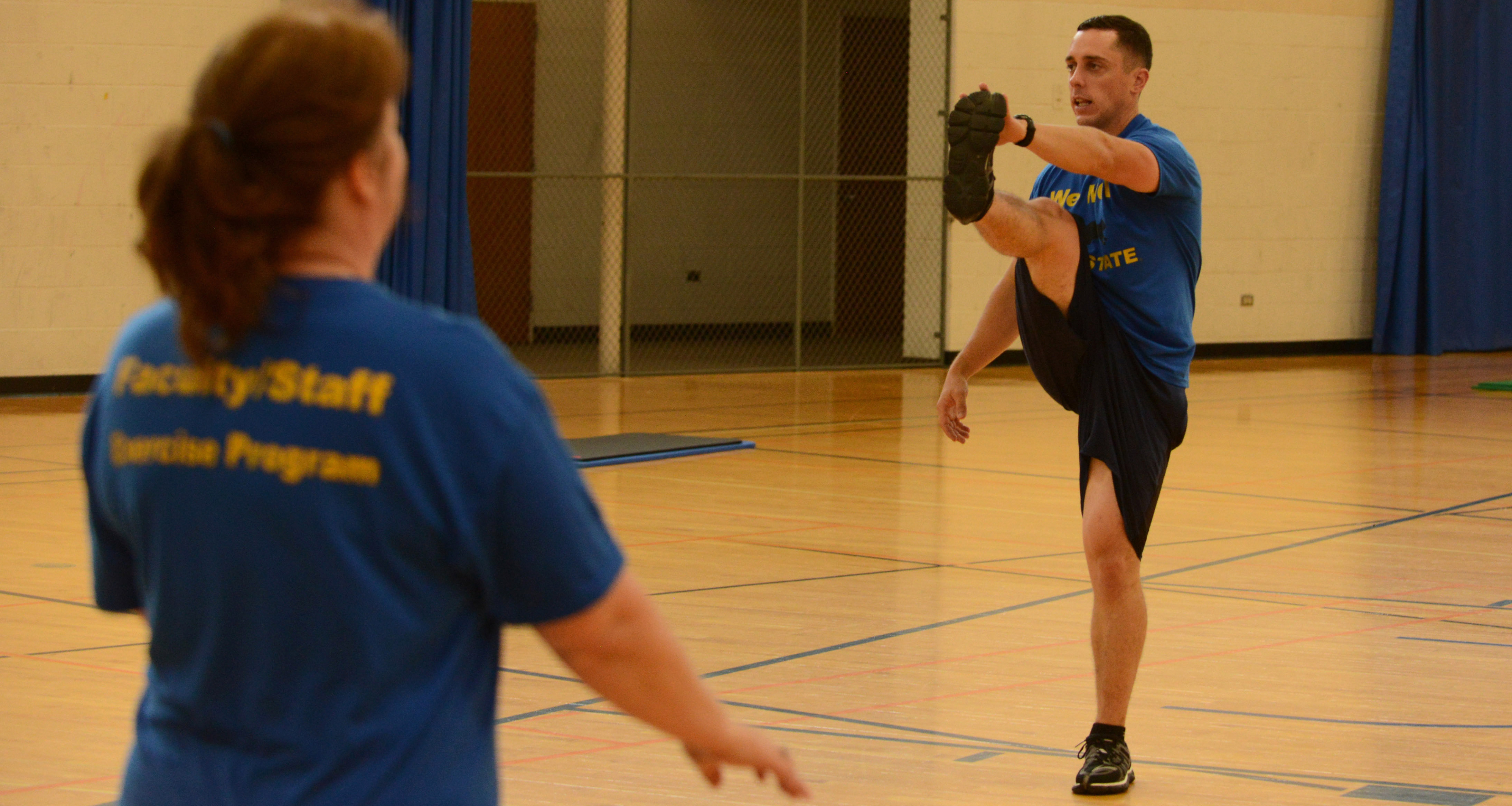In the gym of the MAC Center Annex, you can hear the voices of student trainers echo from one end to the other.
“Nice long strides with those feet,” shouts one student trainer.
“Let’s lunge to me,” encourages another.
«ýƒÍ…¨µº∫Ω exercise physiology graduate students are playing a key role in Fit for Life, an expanded version of the former Faculty/Staff Exercise Program.
Fit for Life is a one-credit, repeatable workshop now open to students, staff, faculty, their families and the general public year-round.
The goal is to improve the health of the «ýƒÍ…¨µº∫Ω community through exercise and diet, while having fun with co-workers, family members and friends.
Ellen Glickman, Ph.D., professor of health sciences in «ýƒÍ…¨µº∫Ω‚Äôs College of Education, Health and Human Services, helped launch both programs. It is a passion of hers to get the campus moving with the help of graduate students who share her dream of promoting a healthy lifestyle.
“Sitting is the new smoking,” Glickman said. “Sitting perpetuates inactivity and weight gain. Obesity is a prominent problem, and in order to counter it, we need to look at energy in and energy out by exercising and reducing the calories we eat.”
Fit for Life offers three, 60-minute classes on Mondays, Wednesdays and Fridays starting at
6 a.m., 12 p.m. and 5:30 p.m. The classes offer a wide range of activities from walking, jogging and cycling to boot camp, strength training, stretching and relaxation exercises.
‚ÄúFrom beginning to intermediate to advanced, whatever level of fitness you‚Äôre at, we will work with you,‚Äù said Curtis Fennell, graduate student in «ýƒÍ…¨µº∫Ω‚Äôs School of Health Sciences.
Participants are given a Movband, a daily fitness tracker that records movement. The results are posted online – anonymously – to allow everyone to track their progress, along with others in the class.
The data also helps students conduct research that they present at scholarly conferences. They even use the information to modify Fit for Life.
If you want to know if it works, just ask Pat Nash, executive assistant in «ýƒÍ…¨µº∫Ω‚Äôs Office of the Vice President for University Relations. Nash has lost 22 pounds.
“My risk factors are all lower – my blood pressure, my cholesterol and my weight loss have all made me much healthier,” Nash said. “My energy level and my work productivity have improved. Overall, my mental health is helped because it makes me feel good.”
Scott Weitzenhoffer, LAN administrator in «ýƒÍ…¨µº∫Ω‚Äôs Office of Institutional Advancement, feels younger.
“I’m back to thinking I’m in my early 40s, and I’m in my mid 50s right now – let’s do some math,” Weitzenhoffer laughed. “Yes, I feel younger, still not as young as I used to feel, but certainly not as old as I felt.”
“We believe that exercise makes you feel better about yourself, about other people,” Glickman said. “You’ll lose fat, you’ll feel better about the others around you. And we believe that the more people we engage in exercise, the better we will feel.”
At the beginning and end of the workshop, tests are taken to measure aerobic endurance, flexibility and strength. Standard blood work also is evaluated.
And just like the name implies, it really is a program for life.
“Actually it’s going to help when I retire,” Nash said. “It’s going to help my retirement benefits because I’m sure I’m going to carry this on for the rest of my life.”
The next Fit for Life workshop begins on Monday, July 13.







